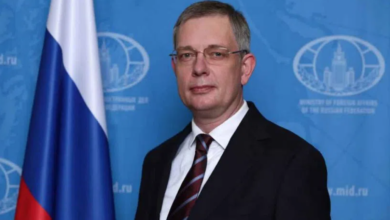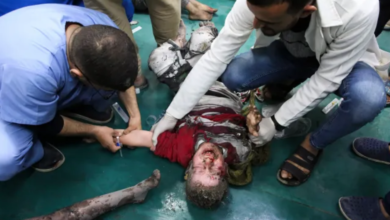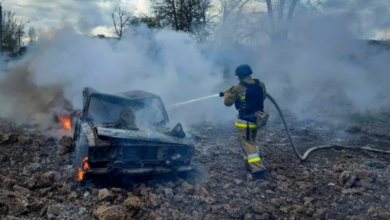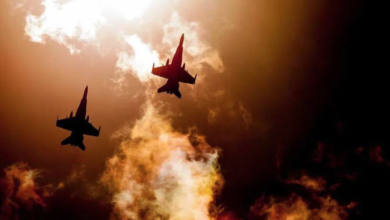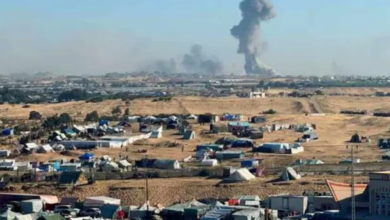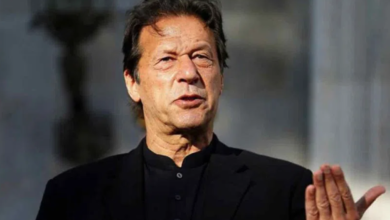Medics in Sudan warn of crisis as health system near collapse
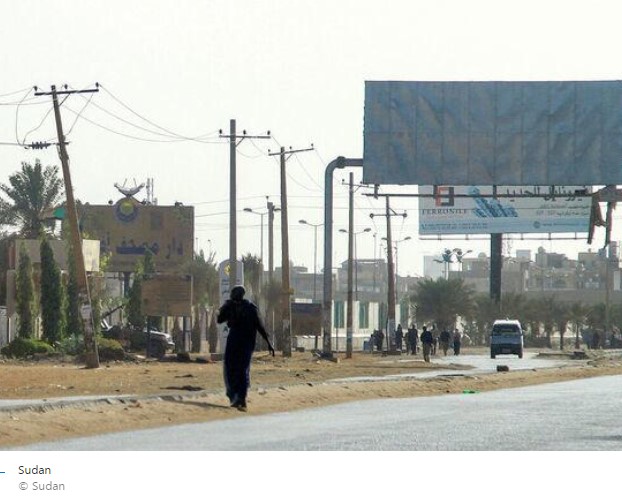
Sudanese medics have described seeing piles of bodies in the streets of the capital, Khartoum, people drinking polluted water, and doctors working under bombardments as the battle between the country’s two warring generals continues despite a threadbare ceasefire.
Intense explosions and shelling were audible in Omdurman, Khartoum’s twin city across the Nile, on Monday and there were reports of further explosions and clashes in the Bahri and Kafouri districts of Khartoum North. In the south of Khartoum, residents reported that the paramilitary Rapid Support Forces (RSF) fired anti-aircraft missiles in response to bombardments by the Sudanese Armed Forces (SAF).
Critical shortages of basic goods including water, food and fuel began to take hold amid rising violence, which has so far killed more than 500 people.
Sudan’s doctors’ union described “an environmental catastrophe” as the number of corpses piled in the streets mounted. With water supplies disrupted across parts of Khartoum, particularly in Bahri, cases of severe disease have risen as desperate people have sought to relieve their thirst by drinking directly from the Nile.
Fighting continued to rage as the UN’s special representative for Sudan, Volker Perthes, said the SAF and the RSF were willing to send parties for talks, possibly in Saudi Arabia. Perthes said the talks would begin with a focus on full enforcement of a ceasefire, as multiple temporary truces have seen little enforcement since the two sides began battling across the streets of the capital more than two weeks ago.
Gen Mohamed Hamdan Dagalo, known as Hemedti, who heads the RSF, told the BBC days ago that he would agree to talks only after a full ceasefire had been implemented. The RSF has made no public announcement of its willingness to join negotiations.
More than 800,000 people could flee into neighbouring countries, the UN’s refugee agency has warned. “UNHCR, with governments and partners, is preparing for the possibility that over 800,000 people may flee the fighting in Sudan for neighbouring countries,” the agency’s chief, Filippo Grandi, said in a tweet. “We hope it doesn’t come to that, but if violence doesn’t stop we will see more people forced to flee Sudan seeking safety.”
As civilians across the Sudanese capital became increasingly isolated and vital supplies ran low, doctors and aid organisations said the country’s healthcare system was on the verge of collapse. Many essential services and evacuations have moved to the town of Port Sudan, 500 miles away on the Red Sea coast, which became the country’s temporary administrative capital as it sheltered thousands who had fled fighting that has overtaken Khartoum, Omdurman and parts of Darfur.

